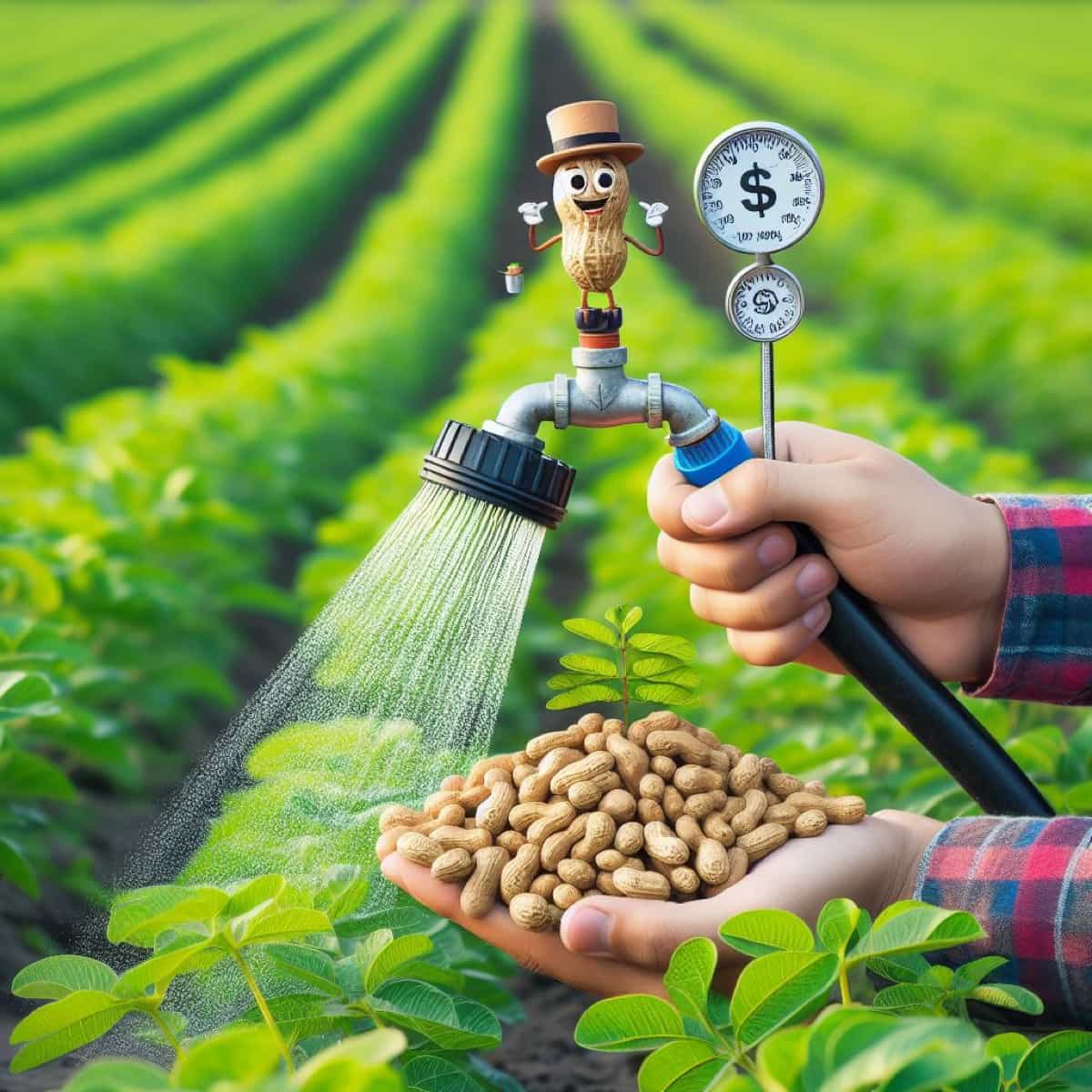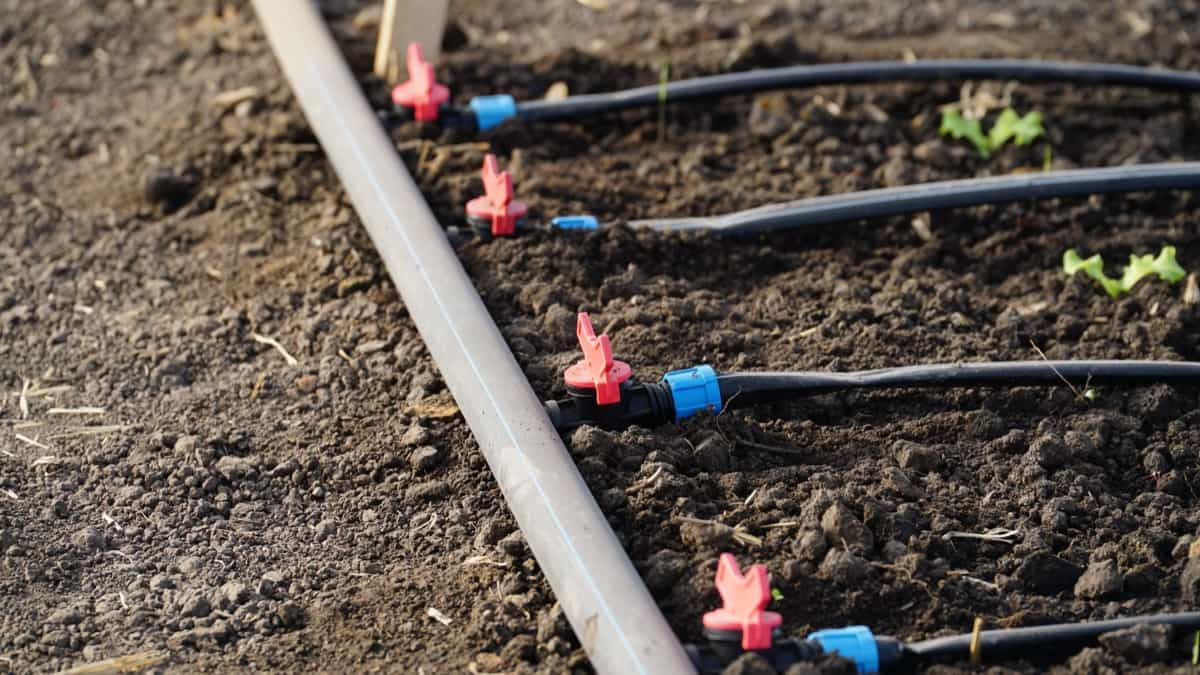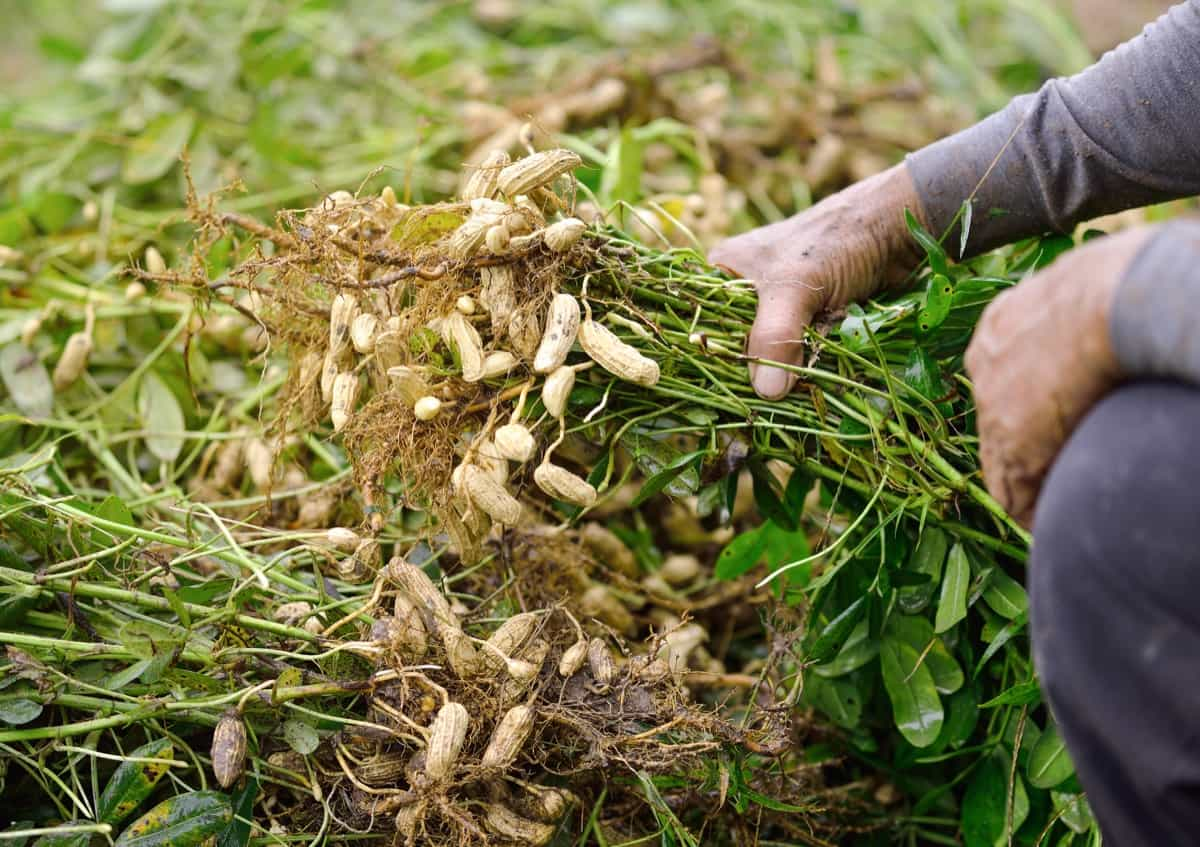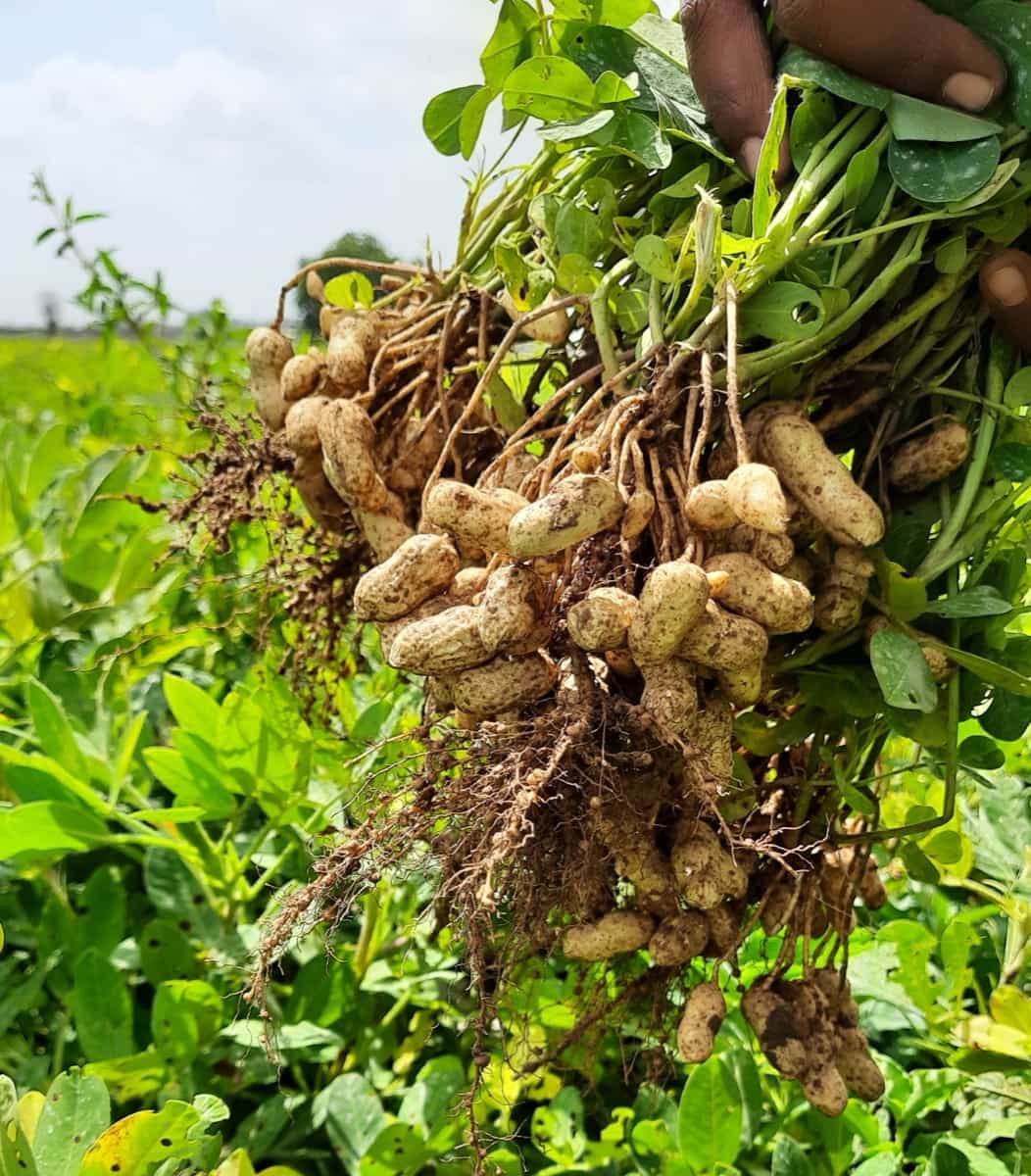Drip irrigation revolutionizes agriculture, ensuring efficient water use and increased crop yields. The initial investment for drip irrigation in groundnut plantations involves several components. Equipment costs, including filters, pumps, and control valves, typically range from Rs. 1,50,000 to Rs. 1,80,000 per acre.

Drip lines and emitters contribute significantly to expenses, with high-quality materials ensuring durability and efficiency. The installation of the entire system, including labor charges, adds another Rs. 20,000 to Rs. 30,000 per acre. However, it’s crucial to factor in potential subsidies, as governmental and agricultural support programs often offer financial aid to promote sustainable practices.
Evaluate the Cost of Drip Lines and Emitters for Groundnut Fields
The cost breakdown for drip lines and emitters in groundnut fields plays a pivotal role in the overall investment. High-quality drip lines, designed to withstand varying environmental conditions, can cost between Rs. 12,000 and Rs. 15,000 per acre. Emitters, responsible for delivering water precisely to the plants, come at an additional cost, ranging from Rs. 8,000 to Rs. 10,000 per acre.
Choosing reliable brands and considering the spacing requirements for groundnut cultivation are crucial factors affecting these costs. Farmers must assess their specific field conditions and water requirements to determine the optimal combination of drip lines and emitters.
Analyze the Expense of Filters and Pressure Regulators in Drip Irrigation Systems
Filters and pressure regulators are vital components in drip irrigation systems, playing a crucial role in ensuring the efficiency and longevity of the system. The cost of filters depends on factors such as the type and capacity, with prices ranging from Rs. 7,000 to Rs. 10,000 per acre. High-quality filters prevent clogging by removing impurities from the water safeguarding the emitters and drip lines.
In case you missed it: 10 Benefits of Groundnut Cake Powder Manure in Your Terrace Garden: Uses, When and How to Apply

Pressure regulators, essential for maintaining uniform water distribution, come at an additional cost of Rs. 8,000 to Rs. 10,000 per acre. These regulators stabilize water pressure, preventing damage to the system and ensuring optimal performance. While these expenses contribute to the upfront investment, they prove instrumental in protecting the overall integrity of the drip irrigation infrastructure, reducing maintenance costs, and enhancing the system’s reliability over time.
Estimate the Cost of Automation and Control Systems in Drip Irrigation for Groundnut
The cost of automation systems for groundnut cultivation can vary widely, ranging from Rs. 20,000 to Rs. 25,000 per acre. These systems include controllers, sensors, and actuators that automate the irrigation process based on factors such as soil moisture levels and weather conditions. While the initial investment may seem significant, the potential for water savings and improved crop yield justifies the expense. Advanced systems may also integrate with mobile applications, enabling remote monitoring and control.
Assess the Price of Pumps and Pumping Stations for Drip Irrigation in Groundnut Farming
The cost of pumps typically ranges from Rs. 20,000 to Rs. 22,000 per acre, depending on factors such as capacity, power source, and brand. The selection of an appropriate pump is essential to ensure that the system can deliver water consistently and maintain the desired pressure throughout the irrigation network. Additionally, the cost of a pumping station, including installation and setup, adds an extra Rs. 10,000 to Rs. 13,000 per acre.
Farmers must consider factors like water source, terrain, and the required pumping capacity when determining the most suitable pump and station for their groundnut plantation. While these costs contribute significantly to the overall investment, they are essential for the reliable operation of the drip irrigation system and optimizing crop yield.
Explore the Cost of Fertilizer and Nutrient Injection Systems in Drip Irrigation for Groundnut
The cost of fertilizer and nutrient injection systems typically ranges from Rs. 18,000 to Rs. 20,000 per acre. Fertilizer injectors allow precise dosing of nutrients directly into the irrigation water, ensuring that plants receive the necessary elements for optimal growth. The expense will vary based on factors such as system complexity, capacity, and the type of fertilizers used.
In case you missed it: 1 Acre Groundnut/Peanut Cultivation Project Report in India: Production Cost and Profit

While the initial investment is notable, the benefits of improved nutrient management, increased crop yield, and resource efficiency make these systems a valuable addition to drip irrigation in groundnut farming. Farmers should carefully assess their soil and crop nutrient requirements to tailor the injection system accordingly, promoting sustainable and cost-effective agricultural practices.
Calculate the Labor and Installation Costs for Drip Irrigation in Groundnut Plantations
Labor and installation costs for drip irrigation in groundnut plantations typically range from Rs. 18,000 to Rs. 20,000 per acre. Labor is required for the proper installation of drip lines, emitters, filters, and other components. The installation process involves tasks such as trenching, laying pipes, setting up filters, and connecting the entire system to ensure efficient water distribution.
Labor costs also include the setup of pumps, controllers, and any additional automation systems. These expenses are crucial to establishing a reliable and effective drip irrigation system, optimizing water use, and promoting healthy groundnut crops.
Factor the Maintenance and Repair Expenses for Drip Irrigation Systems in Groundnut Farming
Maintenance and repair expenses for drip irrigation systems in groundnut farming are essential considerations for sustainable and continuous operation. Annual maintenance costs typically range from Rs. 8,000 to Rs. 10,000 per acre, covering tasks such as system inspection, cleaning filters, and ensuring the proper functioning of emitters.
In addition, occasional repairs due to wear and tear or unexpected issues may incur additional expenses, ranging from Rs. 10,000 to Rs. 15,000 per acre. Timely maintenance and swift repairs are crucial to prevent breakdown and ensure the longevity of the drip irrigation system, safeguarding the overall investment and maximizing crop yield.
Energy Costs Associated with Drip Irrigation in Groundnut Cultivation
The power requirements of pumps influence energy costs for drip irrigation in groundnut cultivation and, if applicable, automation systems. Energy expenses typically range from Rs. 8,000 to Rs. 15,000 per acre annually, depending on factors such as pump capacity, hours of operation, and local electricity rates.
The efficient use of energy is vital for the sustained operation of the irrigation system, and farmers may explore energy-efficient pump options or consider renewable energy sources to minimize long-term operational costs. Proper management of energy consumption contributes to the overall economic viability and environmental sustainability of drip irrigation in groundnut cultivation.
Drip Irrigation Cost for Groundnut Per Acre
| Item | Cost Range (INR) |
| Drip Lines & Emitters | 20,000-25,000 |
| Filters and Pressure Regulators | 15,000-20,000 |
| Automation and Control Systems | 20,000-25,000 |
| Pumps and Pumping Stations | 30,000-35,000 |
| Fertilizer and Nutrient Injection Systems | 18,000-20,000 |
| Labor and Installation Costs | 18,000-25,000 |
| Maintenance and Repair Expenses | 18,000-25,000 |
| Energy Costs | 8,000-12,000 |
Government Subsidy for Drip Irrigation in Groundnut Crops
Groundnut farmers can benefit from subsidies covering up to 45-55% of the total installation cost under the PDMC component in the PMKSY scheme. These government subsidies aim to promote the adoption of efficient irrigation systems, reducing water wastage and fostering environmental sustainability.
In case you missed it: Groundnut Production Guide: A Step-By-Step Cultivation Practices for Beginners

The support provided by government subsidies not only eases the financial burden on farmers but also facilitates the widespread implementation of water-efficient practices, ultimately contributing to enhanced crop productivity and the overall economic viability of groundnut cultivation.
Compare the Overall Operational Costs of Drip Irrigation vs. Traditional Methods in Groundnut Farming
Drip irrigation in groundnut farming presents a compelling economic case despite initial investment. The overall operational costs, encompassing labor, maintenance, and energy, range from Rs. 1,50,000 to Rs. 1,80,000 per acre annually. This is competitive with traditional methods, considering the benefits of water efficiency, enhanced crop yield, and reduced manual labor.
Traditional methods often incur substantial labor expenses for manual watering and can face higher energy costs for inefficient irrigation systems. Drip irrigation’s precision, automation, and reduced water wastage contribute to long-term savings, making it a financially viable and sustainable choice for groundnut cultivation.
Conclusion
In conclusion, while the initial investment for drip irrigation in groundnut plantations involves various components, its long-term benefits, including water efficiency and increased crop yield, make it a sound investment. Governmental subsidies further offset installation costs, making drip irrigation economically attractive. The precision and sustainability offered by drip irrigation ensure optimal resource utilization and contribute to the overall success and viability of the agricultural venture.
- Feed Your Flock for Less: Top 10 Tips to Save on Chicken Feed
- Ultimate Guide to Ossabaw Island Hog: Breeding, Raising, Diet, and Care
- Hatching Answers: The Top 10 Reasons Your Chickens Aren’t Laying Eggs
- Eggs and Economics: Breaking Down the Cost of Raising Backyard Chickens
- Defend Your Greens: Proven Methods to Keep Iguanas Out of Your Garden
- Ultimate Guide to Cinnamon Queen Chicken: A Comprehensive Guide for Beginners
- Ultimate Guide to California Tan Chicken: Breeding, Raising, Diet, Egg-Production and Care
- Ultimate Guide to Marsh Daisy Chicken: Breeding, Raising, Diet, and Care
- 10 Types of Chicken Farming Businesses You Can Start for Profits